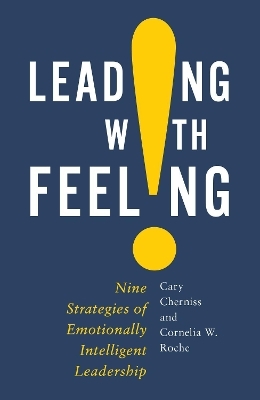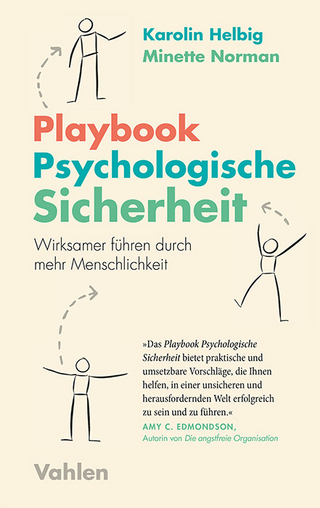
Leading with Feeling
Oxford University Press Inc (Verlag)
978-0-19-069894-2 (ISBN)
For many decades, the conventional wisdom was that emotion has no place in the work world, and the ideal leader is one who approaches problems rationally and unemotionally. However, the reality is that emotion is inevitable when a group of people come together for an extended period of time to work on challenging tasks, and if used effectively, a leader's moods and emotions can be a plus rather than a minus.
This book describes how 25 outstanding leaders used emotional intelligence to deal with critical challenges and opportunities. Featuring commentary from the leaders themselves describing how they handled each situation, it helps managers better understand not just what emotional intelligence is, or how to measure it, or how it is linked to bottom-line results: it also shows how real leaders used their emotional intelligence to deal with real situations. The book distills the leaders' experiences into nine strategies that can help any leader or potential leader to be more effective. Each chapter concludes with activities that help readers to apply immediately each of those strategies.
Cary Cherniss is Director and Co-Chair of the Consortium for Research on Emotional Intelligence in Organizations and Professor of Applied Psychology Emeritus at Rutgers University. He has published over 70 scholarly articles and book chapters as well as seven books, including The Emotionally Intelligent Workplace (Jossey-Bass, with Daniel Goleman) and Promoting Emotional Intelligence in the Workplace: Guidelines for Practitioners (American Society for Training and Development, with Mitchel Adler). In addition to his research and writing, Dr. Cherniss has consulted with many organizations in both the public and private sectors. He received his Ph.D. in Psychology from Yale University. Cornelia W. Roche has performed management coaching in a variety of corporate settings and has consulted to schools, non-profit entities, and small business. Drawing upon research and her previous management experience in a Fortune 500 company, her work involves helping professionals better understand and navigate the individual and organizational forces that impact on their work. In addition to consulting, Roche has served as a staff member of the Wharton School's Executive Development Program. Affiliated with the Emotional Intelligence Consortium since its inception, she has a doctorate from Rutgers University in Organizational Psychology. She currently resides in Northern New Jersey with her husband and son.
Nine Strategies of Emotionally Intelligent Leaders
Foreword
Introduction
1. Focus on Feeling
2. Let People Know How You Feel
3. What Is Your Impact on Others?
4. What Is It Like for Others?
5. What Are those Feelings Telling Us?
6. Change Perspective
7. Respect those Boundaries
8. Enlist the Help of Others
9. Become an Emotional Coach
10. Emotional Virtuosity: Using Several Strategies Together
11. Creating a Social Context that Supports Use of the EI Strategies
12. Taking Charge
Appendix A. Leaders Who Participated in the Research and Their Job Titles
Appendix B. The Research Method
Appendix C. Links between the Basic Emotional Intelligence Abilities and the Nine Strategies
References
| Erscheinungsdatum | 23.07.2020 |
|---|---|
| Verlagsort | New York |
| Sprache | englisch |
| Maße | 231 x 152 mm |
| Gewicht | 540 g |
| Themenwelt | Geisteswissenschaften ► Psychologie ► Arbeits- und Organisationspsychologie |
| Geisteswissenschaften ► Psychologie ► Sozialpsychologie | |
| Geisteswissenschaften ► Psychologie ► Verhaltenstherapie | |
| ISBN-10 | 0-19-069894-2 / 0190698942 |
| ISBN-13 | 978-0-19-069894-2 / 9780190698942 |
| Zustand | Neuware |
| Informationen gemäß Produktsicherheitsverordnung (GPSR) | |
| Haben Sie eine Frage zum Produkt? |
aus dem Bereich


